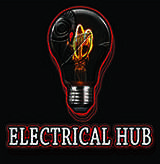Resume of an Electrical Engineer: A Comprehensive Guide
In today’s highly competitive job market, a well-crafted resume of an electrical engineer can be the key to securing employment in the field of electrical engineering. A resume is a document that summarizes an individual’s educational and professional experience, skills, and achievements. For electrical engineers, a well-crafted resume is essential to showcase their technical expertise and qualifications to potential employers.
Are you struggling to create a standout resume that will grab the attention of potential employers? Consider using an online resume writing service to help you .
“9 Steps” to Best Resume for “Electrical Engineer”

1. Introduction
As an electrical engineer, your resume should highlight your proficiency in designing, testing, and maintaining electrical systems and equipment, as well as your ability to manage projects, analyze data, and solve complex problems.
Additionally, your resume should emphasize your communication and leadership skills, which are crucial for collaborating with teams and communicating technical information to stakeholders. In this competitive job market, a strong resume can make all the difference in landing your dream job as an electrical engineer.
2. Professional Summary
The professional summary section of the resume of an electrical engineer should provide a brief overview of the candidate’s professional experience, skills, and achievements. This section should emphasize the qualifications that are most relevant to the position being applied for. A strong professional summary can make a significant impact in capturing the attention of the recruiter or hiring manager. Don’t let a lackluster resume hold you back from achieving your career goals.
For example, an electrical engineer with experience in power systems design and project management might include the following professional summary:
“Experienced electrical engineer with a track record of success in designing and managing complex power systems projects. Skilled in project planning, team leadership, and data analysis. Strong communication and interpersonal skills with a proven ability to collaborate with stakeholders at all levels. Proficient in the use of various software and programming languages.”
This summary highlights the candidate’s relevant experience in power systems design and project management. It also emphasizes their skills in project planning, team leadership, and data analysis, which are all important qualifications for the position. By including these key qualifications upfront, the candidate is more likely to grab the attention of the recruiter or hiring manager and move on to the next stage of the hiring process.
3. Technical Skills
In the technical skills section of the resume of an electrical engineer, it is important to list the skills that are most relevant to the position being applied for. Here are some technical skills that an electrical engineer might include:
- Proficiency in electrical design, testing, and maintenance
- Experience with software such as MATLAB, LabVIEW, and AutoCAD
- Knowledge of programming languages such as C++, Python, and Java
- Familiarity with power systems and power electronics
- Understanding of digital and analog circuit design
- Knowledge of control systems and automation
- Ability to troubleshoot and diagnose electrical issues
- Experience with electrical safety standards and regulations
- Familiarity with instrumentation and measurement techniques
It is important to highlight proficiency in electrical design, testing, and maintenance, as these are core competencies for an electrical engineer. Additionally, mentioning experience with software and programming languages can demonstrate the ability to work with modern tools and technologies. By showcasing these technical skills, an electrical engineer can position themselves as a strong candidate for the job.
4. Professional Experience
In the professional experience section of the resume of an electrical engineer, it is important to provide a detailed description of past work experience. This section should highlight accomplishments and results achieved in previous roles, and provide examples of projects completed and their impact on the organization. Here are some tips for writing this section:
- Start with the most recent job and work backwards chronologically.
- Provide a brief overview of each job, including the job title, company name, and employment dates.
- Emphasize accomplishments and results achieved in each role. Use numbers and metrics where possible to quantify achievements.
- Provide examples of projects completed and their impact on the organization. Describe your role in the project and the results achieved.
- Focus on the skills and experiences that are most relevant to the position being applied for.
For example, an electrical engineer might write:
“Electrical Engineer, XYZ Company June 2018 – Present
- Designed and implemented a new power distribution system for a manufacturing facility, resulting in a 15% reduction in energy costs.
- Led a team of five engineers to develop a new control system for a production line, increasing throughput by 20%.
- Developed and implemented a preventive maintenance program for critical electrical equipment, reducing downtime by 30%.
These achievements demonstrate the candidate’s skills in electrical design, project management, and problem-solving. By highlighting the impact of their work on the organization, the candidate can show their value as an electrical engineer.
5. Education and Certifications
In the education and certification section of the resume of an electrical engineer, it is important to list all relevant educational qualifications and certifications that demonstrate the candidate’s knowledge and expertise. Here are some tips for writing this section:
- List educational qualifications in reverse chronological order, starting with the most recent degree or certification.
- Include the name of the institution, degree or certification obtained, and date of graduation or certification.
- Mention any specializations or areas of focus that are relevant to the position being applied for.
- List any relevant certifications or licenses that demonstrate the candidate’s expertise in a specific area.
- Mention any awards or recognition received for academic or professional achievements.
For example, an electrical engineer might write:
“Educational Qualifications:
- Master of Science in Electrical Engineering, University of California, Los Angeles, 2017
- Bachelor of Science in Electrical Engineering, University of Texas at Austin, 2015
Certifications:
In the certifications section of the resume of an electrical engineer, it is important to list any relevant certifications that demonstrate the candidate’s expertise in a specific area. Here are some examples of certifications that an electrical engineer might include:
- Professional Engineer (PE) License, State of California, 2019
- Certified Energy Manager (CEM), Association of Energy Engineers, 2018
- Certified Power Quality Professional (CPQ), Association of Energy Engineers, 2017
- Certified Automation Professional (CAP), International Society of Automation, 2016
- Certified Electrical Safety Compliance Professional (CESCP), NFPA, 2015
These certifications demonstrate the candidate’s knowledge and expertise in specific areas of electrical engineering, such as energy management, power quality, automation, and electrical safety. Including these certifications on the resume can help the candidate stand out as a qualified and competent electrical engineer.
6. Awards and Recognition
In the awards and recognition section of the resume of an electrical engineer, it is important to mention any awards or recognition received for academic or professional achievements. Here are some examples of awards and recognition that an electrical engineer might include:
- Dean’s List, University of California, Los Angeles, 2015-2017
- IEEE Student Member of the Year, University of Texas at Austin, 2014
By including these awards and recognition on the resume, the candidate can demonstrate a track record of academic and professional achievement. This can help the candidate stand out as a high-achieving and dedicated individual, which can be attractive to potential employers.
By including all relevant educational qualifications and certifications, the candidate can demonstrate their expertise and knowledge in electrical engineering. Additionally, mentioning any awards or recognition received can demonstrate a track record of academic and professional achievement.
7. Additional Information
In addition to professional experience, education, certifications, and awards, the following sections can also be included in the resume of an electrical engineer to provide a more comprehensive profile of the candidate:
Extracurricular Activities and Volunteer Experience:
- List any relevant extracurricular activities or volunteer experience that demonstrate leadership, teamwork, or technical skills, such as participation in a robotics club or volunteering at a local electronics recycling center.
- Language Proficiency or International Experience:
- Mention any language proficiency or international experience that may be relevant to the position, such as fluency in a second language or experience studying or working abroad.
- Professional Memberships or Affiliations:
- List any professional memberships or affiliations that demonstrate the candidate’s involvement and interest in the field of electrical engineering, such as membership in the Institute of Electrical and Electronics Engineers (IEEE) or the National Society of Professional Engineers (NSPE).
Here’s an example of what these sections might look like in a resume:
- Extracurricular Activities and Volunteer Experience:
- Volunteer, Habitat for Humanity, 2018-2019
- Member, Robotics Club, University of Illinois, 2014-2016
- Language Proficiency or International Experience:
- Fluent in Spanish
- Studied abroad in Japan, Summer 2015
- Professional Memberships or Affiliations:
- Member, Institute of Electrical and Electronics Engineers (IEEE), 2015-present
- Member, National Society of Professional Engineers (NSPE), 2017-present
Including these additional sections can help provide a more well-rounded picture of the candidate’s interests, skills, and experiences.
8. References
In the references section of the resume of an electrical engineer, it is important to list the contact information for professional references who can speak to the candidate’s skills, experience, and character. It is also important to confirm permission to list these individuals as references.
Here’s an example of what the references section might look like in a resume:
References:
- John Smith Senior Electrical Engineer, ABC Company Phone: (555) 555-1234 Email: johnsmith@email.com Permission to list as reference: Yes
- Jane Doe Project Manager, XYZ Corporation Phone: (555) 555-5678 Email: janedoe@email.com Permission to list as reference: Yes
Including this section can help demonstrate the candidate’s credibility and reputation in the field, and can help potential employers verify the candidate’s qualifications and suitability for the position.
9. Conclusion
In the conclusion section of the resume of an electrical engineer, it is important to summarize the candidate’s qualifications and express enthusiasm for the position. It is also important to provide contact information for follow-up communication
Here’s an example of what the conclusion section might look like in a resume.
As a highly skilled electrical engineer with experience in design, testing, and maintenance, I am confident that I would be a valuable addition to your team. My strong technical skills, attention to detail, and ability to work collaboratively make me an ideal candidate for this position.
I am excited about the opportunity to contribute my expertise to your organization and to continue to develop my skills in a dynamic and challenging environment. Please feel free to contact me at any time to discuss my qualifications further or to schedule an interview.
Contact Information:
John Doe 123 Main Street Anytown, USA 12345 Phone: (555) 555-1234 Email: johndoe@email.com
Including this section can help the candidate make a positive final impression on potential employers and leave them with a clear way to follow up and move forward in the hiring process.
Subscribe to our Newsletter “Electrical Insights Daily” to get the latest updates in Electrical Engineering. You can also Follow us on LinkedIn and Facebook to see our latest posts on Electrical Engineering Topics.
Worth Read Posts
